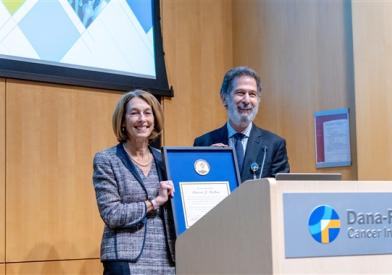
Kevin Michael Haigis, PhD
Contact Information
Office Phone Number
Biography
Kevin Michael Haigis, PhD
Dr. Haigis received his PhD from the University of Wisconsin in 2002 and continued training as a postdoctoral fellow in the laboratory of Tyler Jacks at MIT. He became a Harvard Medical School Assistant Professor of Pathology in 2007 and Associate Professor of Medicine in 2014. Additional appointments include Assistant Pathologist at Massachusetts General Hospital (2007-2014); Faculty Member of the HMS Biological and Biomedical Sciences Graduate Program and Full Member of the Gastrointestinal Malignancies Cancer Genetics Program of the DF/HCC (both 2007 – present); Investigator at the Center for the Study of Inflammatory Bowel Disease at MGH/BIDMC (2007-2016); Associate Member of the Center for Systems Biology at MGH (2010-2014); Member of the Harvard Digestive Disease Center and Faculty Member of the Bioinformatics and Integrative Genomics Graduate Program (both 2016- present). He served as Director of Cancer Genetics at Beth Israel Deaconess Cancer Center from 2014 until joining Dana-Farber as Chief Research Officer in 2020. He is an Associate Member of the Broad Institute (2017- present).
Researcher
Physician
Recent Awards
- Grand Challenge, 2019
- Nodal Award, 2009
- Research Scholar Grant, 2008
- Career Development Award, 2007-2008
- Howard Temin Award, 2006
- Robert Black Fellowship, 2003
- Schlimgen Award for Dissertation Research, 2002
Locations

Dana-Farber Cancer Institute
450 Brookline Avenue Mayer MA-0641 Boston, MA 02215Dana-Farber Cancer Institute



.jpg?itok=WVqUqoeP)